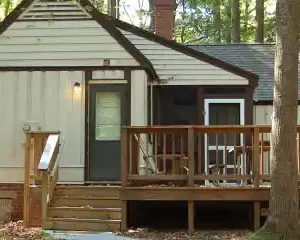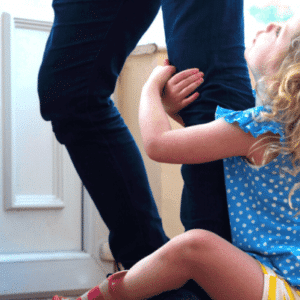I signed the deed over to my granddaughter, Maya, a few weeks before my health slipped. A small, sturdy house in Seattle—nothing flashy, but it was everything I had. She’s been with me since she was five, left on my porch with a pink backpack and a promise that her parents’ “temporary” overseas job would be over soon. It wasn’t. The calls thinned, the visits stopped, and I raised her through missing teeth, math homework, and heartbreak. That house felt like her birthright, the one solid thing I could place in her hands before I ran out of time.
Then my son showed up.
Thomas and his wife, Sharon, arrived with suitcases and practiced smiles, as if a decade were a weekend away. They’d heard—through a relative who never calls for anything good—about the property transfer. The politeness lasted fifteen minutes. The moment Thomas realized the deed was in Maya’s name, his face hardened.
“She’s eighteen,” he said, voice sharpening. “This is too much for a girl. The house belongs with us.”
Sharon nodded like a metronome, already talking about “rebuilding” their lives and needing a home base. They’d rehearsed this. I told them they could have the guest room for a few days but the deed would not be changing hands. I reminded my son that he forfeited more than furniture when he left—he forfeited responsibility. He looked at me like I’d stolen something that belonged to him.
The air in my house turned heavy. They circled Maya with shiny promises they couldn’t afford and whispered that I was “too old” to manage finances, that they should “co-own” everything “for her sake.” Maya grew quiet in a way she never had—calm on the surface, storm underneath. At night, I lay awake bargaining with doubt, asking myself if I’d strapped too much worry to an eighteen-year-old’s future.
The breaking point was an accident. I was in the attic searching for photo albums—something bright to soften the hard edges of our days—when I dragged out an old trunk from Thomas’s childhood. Taped to the underside of the lid was a small, brittle postcard. Courthouse seal. Heavy stamp. Addressed to Thomas and Sharon. Thirteen years old.
It was a final notice from Seattle Family Court: after multiple missed hearings and no support, permanent custody was granted to me. The last line was blunt as a gavel—parental rights terminated.
I sat right down on that dusty floor and let the truth flood in. They hadn’t left to chase a career and lost track of time. They’d been served, and instead of fighting for their daughter, they walked away. Not just emotionally—legally. They let the court make me the parent so they wouldn’t have to be.
I drove to the courthouse with my hands shaking. Records don’t lie. The files said exactly what the postcard did: years ago, the state made it official. On paper, I was more than a grandmother—I was the parent of record. The story I’d told myself to keep things bearable—that they’d meant to come back, that work got in the way—crumbled.
And then everything else clicked into place. They didn’t want the house because they worried about Maya. They wanted to control an asset they assumed was still part of my estate. They had no idea I’d finished the transfer to Maya through a trust structured for exactly this situation—assets passed to a child under permanent guardianship, wrapped in a narrow legal exception that kept the property clean and protected. What they also didn’t know: their long-ignored child support and failure-to-provide penalties hadn’t vanished into the attic dust. Poking at the deed had woken up the past.
I came home with the court orders in my bag and told them to leave. They puffed up, claimed “parental rights,” and I set the papers on the table between us like a line they couldn’t cross. Their faces went pale. I explained, calmly, that they had no claim to Maya or her property, and that their sudden interest had already stirred a review they wouldn’t enjoy. The trust stands. The house is hers. And the state, for the first time in years, is watching.
They packed in a hurry. The silence they left behind felt like oxygen.
I made tea, waited for the kettle to stop screaming, and told Maya the whole truth. I showed her the postcards, the court file, the signature scrawled thirteen years ago that made me, legally and emotionally, her mother. I braced for tears. She didn’t cry. She looked at the papers, then at me, steady as a lighthouse.
“Thank you,” she said. “Thank you for choosing me.”
That was the real deed, I realized—not ink and a parcel number, but a thousand small choices over a thousand ordinary days. Lunches packed. fevers cooled. School forms signed. The quiet declaration I made over and over: you’re mine to protect.
The lesson I carry now is simple. Blood can make a family, but love keeps one. A house is walls and a roof. An inheritance is safety, consistency, and someone who shows up. Sometimes the bravest thing you can do for the future is peel the lies off the past and set the truth in sunlight. I gave Maya the house because it’s solid. I told her the truth because it makes her even stronger.
If you believe family is earned by showing up—not just by showing a name on a paper—then you already understand what we built here. What does “true family” mean to you?





